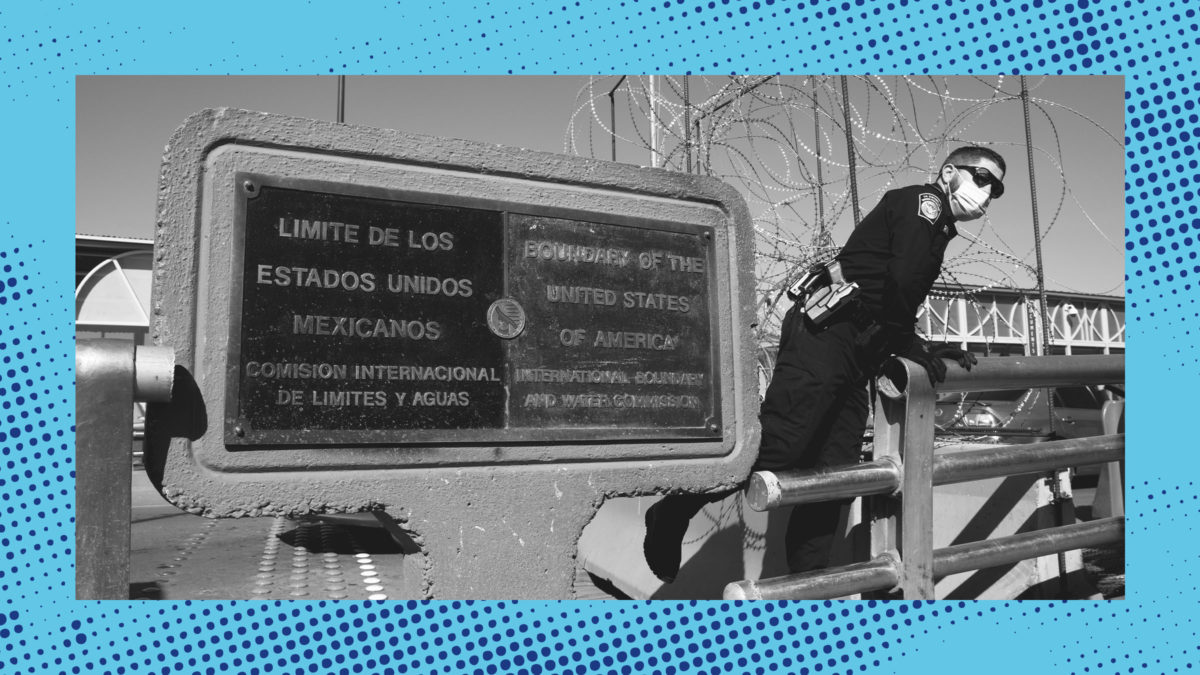On Tuesday, the Supreme Court will hear oral argument in Biden v. Texas, a case about whether a single Texas judge can strongarm the Department of Homeland Security into abandoning its obligations under federal asylum law. At issue are the Trump-era Migrant Protection Protocols, better known as “Remain in Mexico”—a program that places asylum seekers at risk of deadly violence for daring to exercise their legal right to refuge. Although President Joe Biden’s administration has sought to rescind it, multiple courts have insisted he cannot do so, making policy judgments in an area of law that the Court has long claimed requires special deference to the other branches of government.
The “Remain in Mexico” program, which President Donald Trump unveiled in January 2019, requires that asylum seekers at the border go through a metering process—roughly akin to grabbing a slip at the butcher shop, except the stakes are life and death. Once they have their place in line, Customs and Border Protection agents remove them to Mexico where they await a virtual court hearing scheduled months in the future. With nowhere else to go, people wait in squalid camps for the chance to make their case via grainy video-teleconference in a haphazard “tent court.” In the meantime, they are as vulnerable as it gets: The advocacy group Human Rights First has counted at least 816 cases of kidnapping, rape, torture, assault, and other attacks on asylum seekers subjected to Remain in Mexico.
In April 2019, a federal district court granted an emergency request to suspend Remain in Mexico while legal challenges to it proceeded through courts. A Ninth Circuit Court of Appeals panel eventually affirmed the district court, issuing an order that would have barred Remain in Mexico’s implementation in California and Arizona. However, the Trump administration appealed in an emergency request to the Supreme Court, which the justices granted in a brief one-paragraph order. By allowing the program to take effect, the Court functionally closed the border to the vast majority of asylum seekers. The Trump administration returned more than 70,000 of them to Mexico.
Biden moved to rescind Remain in Mexico shortly after taking office. Four months later, Texas and Missouri sued to stop him, claiming the rollback created the “most catastrophic and prolonged border crisis in modern American history.” The numbers tell a different story: In the five months after the rescission order, DHS processed just over 13,000 asylum seekers. By comparison, in 2019, the U.S. granted 46,500 people asylum.

A temporary shelter set up for asylum seekers on the Mexico side of the border in 2018 (Mario Tama/Getty Images)
Even so, last August, a Trump-appointed district court judge sided with Texas and Missouri, holding that the Biden administration hadn’t properly addressed states’ interests before rescinding the program. Perhaps most shockingly, the court held that rescinding “Remain in Mexico” would violate U.S. immigration law because it would result in what CBP agents, in practice, have always done: releasing at least some people from detention while their claims are processed. Based on this novel reading of immigration law, the court ordered Biden to re-implement Remain in Mexico “in good faith” or take new action that otherwise “complied with the law.” On the basis of a procedural issue, a district court effectively rewrote immigration law overnight.
The ultraconservative Fifth Circuit Court of Appeals agreed, admonishing the Biden administration for the more detailed rescission statement it issued to try and cure its alleged procedural error. “DHS claims the power to implement a massive policy reversal—affecting billions of dollars and countless people—simply by typing out a new Word document and posting it on the internet,” the court wrote. Unmentioned in the Fifth Circuit’s opinion was an acknowledgement of the fact that a single federal judge was claiming the power to do exactly that. In a brief order, the Supreme Court, too, declined to intervene; only Justices Stephen Breyer, Sonia Sotomayor, and Elena Kagan noted their dissents.
In Biden v. Texas, Texas and Missouri have again argued that federal immigration law requires DHS to detain all asylum seekers arriving at the border. This is simply not consistent with how immigration enforcement works; in its reply brief, the Biden administration correctly observes that this sweeping reinterpretation of existing law would make illegal the “border-management practices of every administration in the last quarter-century.”
The ultimate harm of programs like Remain in Mexico—and the legal system’s role in upholding them—is the deterrent effect on people with legitimate claims of fear of persecution. When rolling out MPP, the Trump administration claimed its process included safeguards for people who fear violence if returned to Mexico. Yet internal DHS analyses revealed serious flaws in the screening process that cast doubt on whether asylum seekers were provided even the limited protections DHS had promised. The confusing and sometimes contradictory opinions in the Remain in Mexico saga have created another avenue to wrongfully deport people for an agency with an already-rich history of doing exactly that.

